Medical research in Israel a wake up call for the government before the next crisis
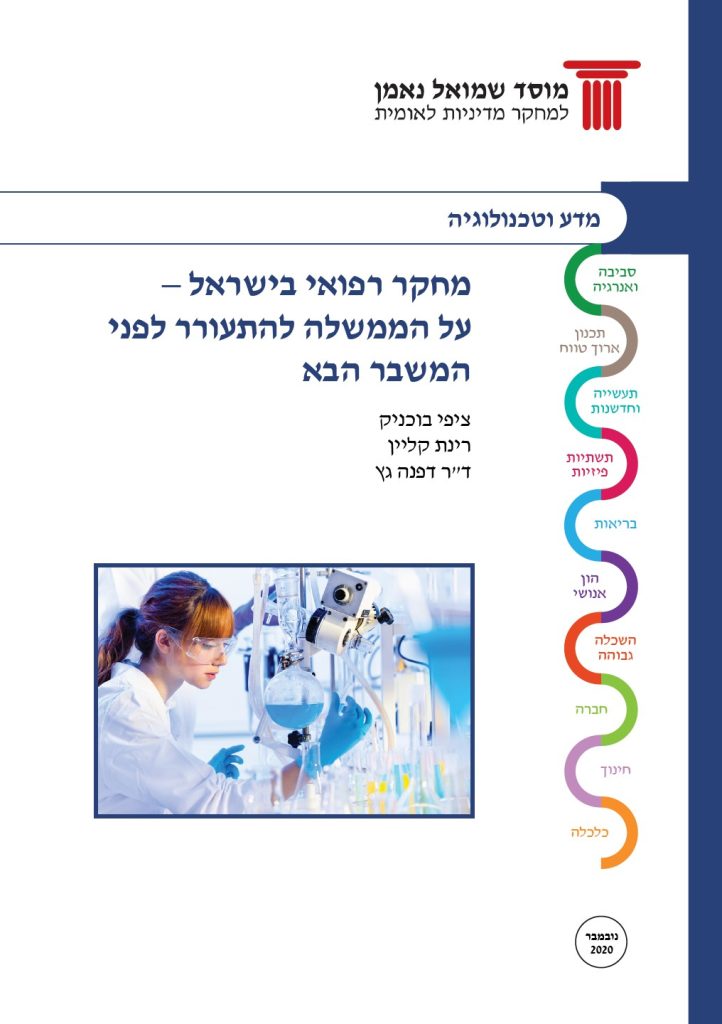
An analysis of CBS and OECD data on government investments in medical R&D reveals a gloomy picture: only 0.5% of government R&D investments are in the health care sector; the past five years have seen a 20% decline in hospital research funding compared to other OECD countries, Israel is ranked lower in R&D health investments. […]
A Computational Analysis of R&D Support Programs
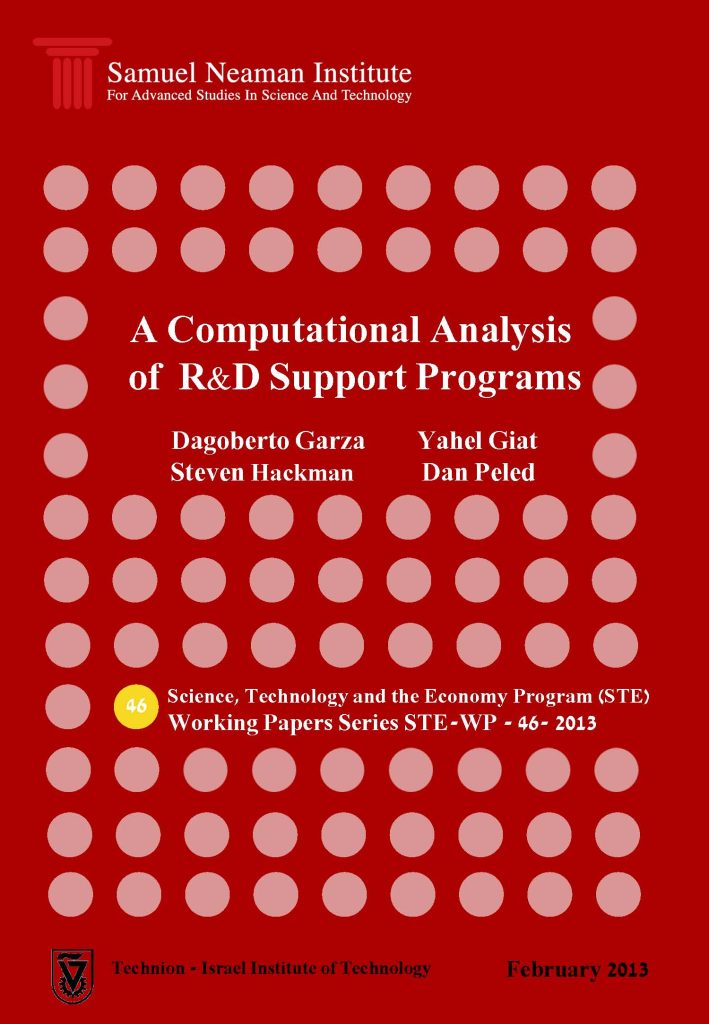
Government R&D support programs are examined within a dynamic equilibrium model of imperfectly competitive industries in order to study the effectiveness of such programs and the extent to which their design matters. We compare two common support schemes, R&D tax credit and direct R&D grants. Adopting comprehensive welfare measures that take into account government, producer […]
Strategic Innovation Policy (STE-WP-44)
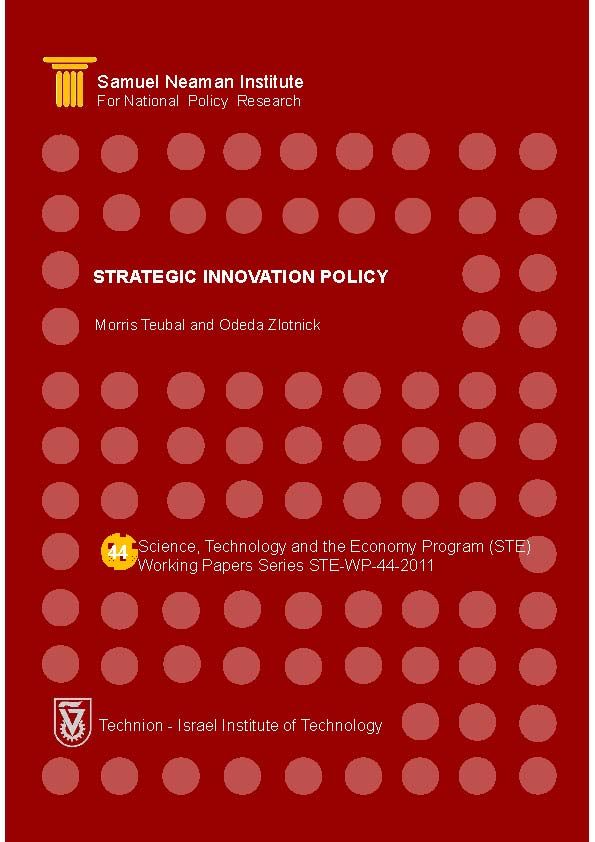
Strategic Innovation Policy (SIP) emphasizes the importance of embedding innovation policy decisions (broadly defined to include science, technology, higher education policy, and policies to promote entrepreneurship and venture capital) within a fixed, knowledge-based strategic system. Creating a vision, identifying priority areas, and establishing a coherent set of priorities must occur before the design and implementation of […]
Evolutionary Interpretation of VC Policy in Israel, Germany, UK and Scotland (STE-WP-45)
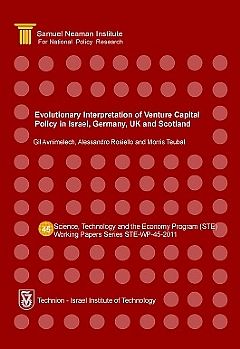
Despite many attempts to develop high-impact VC policies during the 1990s in Europe , most VC markets in Europe are still underdeveloped. Many of these policies were based on ‘traditional’ VC policy involve a mix of monetary incentives and institutional changes. In this paper, we present an alternative evolutionary VC policy, which is based on […]
VC Policy: Moving from a Financial Perspective towards a Systemic and Evolutionary Framework (STE-WP-42)
Many VC policies in Europe up to and including the 1990s took a financial view of VC that focused on bridging financial gaps rather than creating of a new mechanism to assure the emergence of higher forms of organization, such as a cluster or a market. Following the weak impact of some of these policies, […]
Together but Apart: ICT and Productivity Growth in Israel (STE-WP-41)
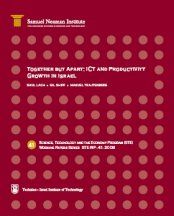
There is broad consensus regarding the significant role of Information and Communication Technology (ICT) in the past decade, both in the renewal of labor productivity growth in the U.S. and in the development of this productivity gap between the U.S. and the European Union. Israel’s high-tech sector, which is mostly engaged in ICT production, grew […]
Information and Communication Technology (ICT) Investments in Israel STE-WP-37
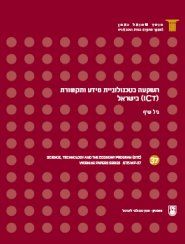
The main goal of this work is to process and analyze first of its kind industry-level ICT-investments data in Israel between 1990 and 2003. This data enables, for the first time, thorough and detailed examination of the ICT investments and usage in Israel. Based on the data analysis and comparisons to parallel international data sources, […]
Do High-Skill Immigrants Raise Productivity? Evidence from Israeli Manufacturing Firms, 1990-1999 STE-WP-36
During the second part of the 1990s, the Israeli economy experienced a surge in labor productivity and total factor productivity, which was driven primarily by the manufacturing sector. This surge in productivity coincided with the full absorption and integration into the workforce of highly skilled immigrants from the former Soviet Union. The Soviet immigrants were […]
Harnessing Success: Determinants of University Technology Licensing Performance STE-WP-35
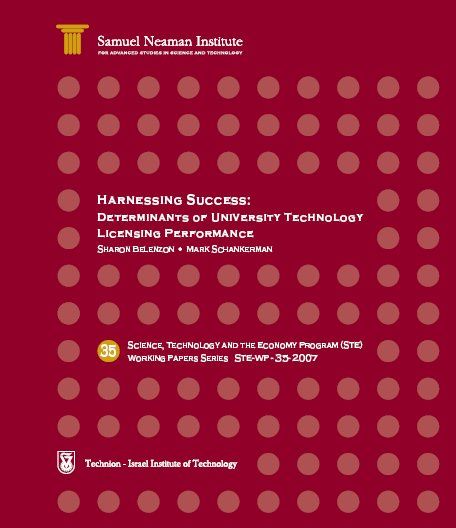
We study the impact of incentive pay, local development objectives and government constraints on university licensing performance. We develop and test a simple contracting model technology licensing offices, using new survey information combined with panel data on 86 U.S. universities for the period 1995-99. We find that private universities are much more likely to adopt […]
KNOWLEDGE-INTENSIVE PROPERTY RIGHTS (STE-WP-39)
Venture capitalism is a major institutional innovation based on identifying economies of scope in transactions of technological knowledge, bundled with managerial competence, reputation, screening procedures and equity. It has paved the way to the emergence of new surrogate markets for knowledge, i.e. financial markets specialized in trading knowledge-intensive property rights. This development has important benefits […]
